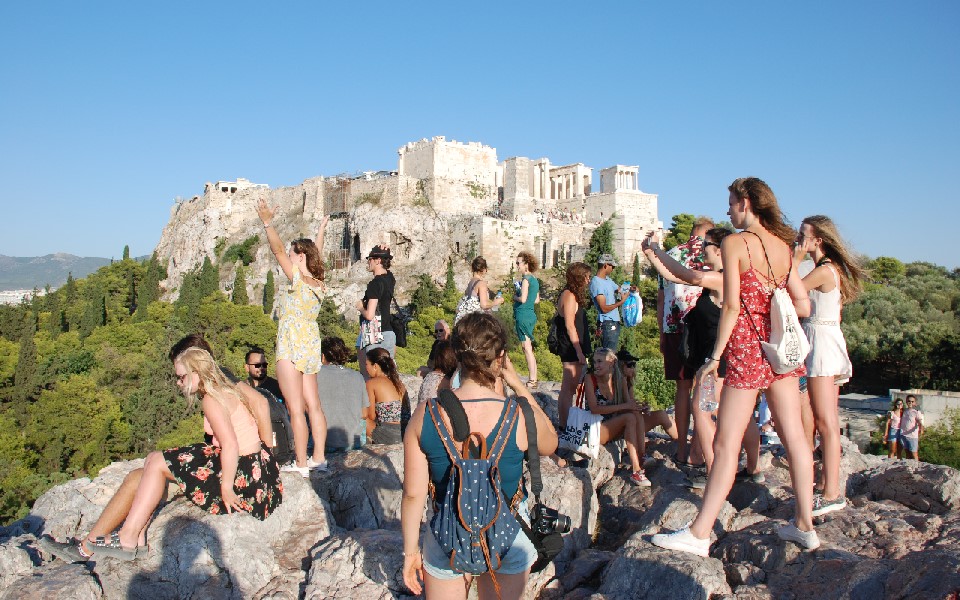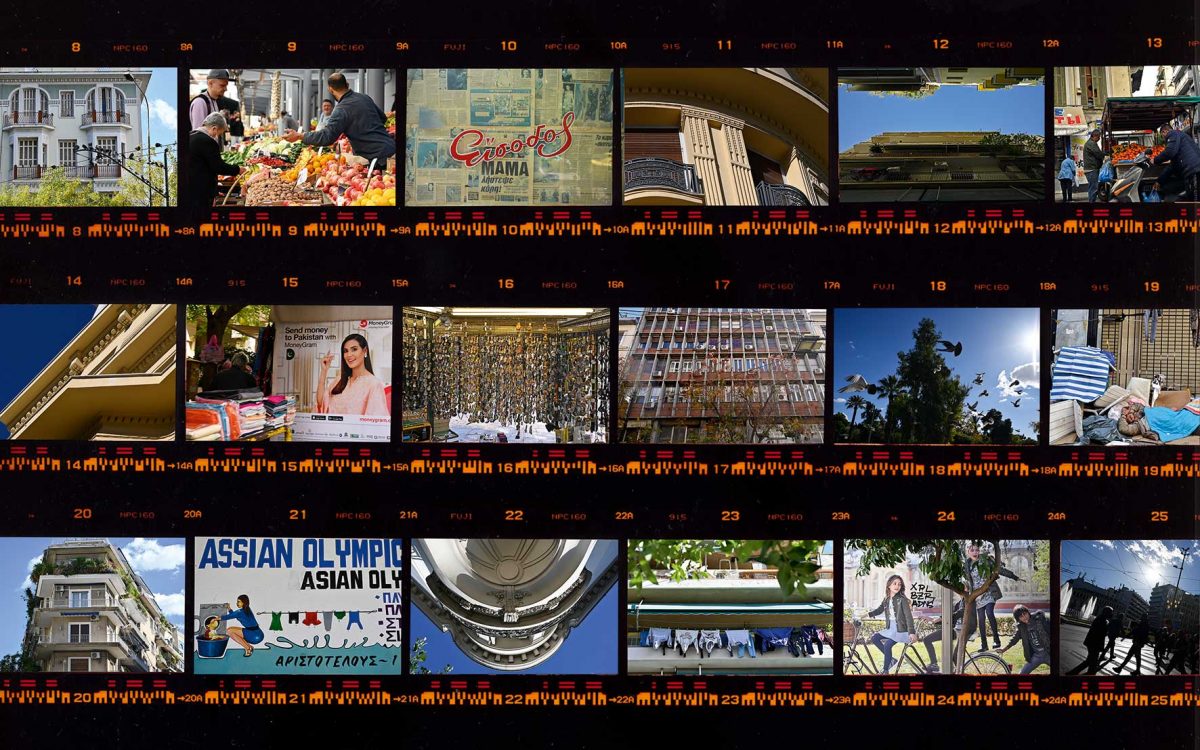After an almost jubilant summer, Athens is into what is essentially an “introverted” part of the year for the city, those few months when it gets a taste of what the whole year is like for some other European capitals. This is the time when the city settles down, and an older version of Athens emerges, when occupancy at the big hotels drops and you know that the tourists won’t be back in droves until Catholic Easter. It’s the low season, a perfect time to reflect and regroup. And reflect we must, because never before have we heard so many voices expressing such collective apprehension so intensely. Will the tourism success story do more harm than good in the long term? Does the city’s economic growth model need to be enriched and broadened, perhaps, with more activities that honor the often overlooked Athenian virtue of mixed use?
There’s no doubt that the tourists were a welcome sight after the pandemic. Greeks do, however, tend to get excited when they see a successful model and they’re often eager to ride new waves. Investments in the hospitality sector have exceeded all expectations; it’s no exaggeration to say that nine out of every 10 construction sites in downtown Athens are for new hotels. Warnings about a possible bubble in the hospitality market in the not-so-distant future do not seem to be dampening the appetites of prospective investors – at least not for the time being. But the debate on the toll of overtourism should affect the decision-makers and those putting their money on the line.

© Dimitris Vlaikos
‘It mustn’t lose its soul.’
Athens’ transformation into a “theme park” for tourists may not have sounded all that bad at the peak of the economic crisis in the mid-2010s, but today, more and more people are aware of what is at stake. “Yes, Athens can change, but it mustn’t lose its soul,” the capital’s mayor, Kostas Bakoyannis, told the daily newpspaper Kathimerini in a recent interview. “This city’s magic lies in mixed uses, in the fact that just a few meters from the city hall, you can find a good restaurant or a boutique hotel, or buy buttons or even an anchor for a boat. We don’t want Athens to become an ancient-themed or a neoclassical-themed Disneyland,” he added.
Bakoyannis also noted that he has expressed his support for regulating the short-term apartment leasing market, with the municipal authority “being given legal jurisdiction, as is the case in the rest of Europe. In some parts of the city, we are beyond saturation, while in others, we’re looking for more Airbnbs,” he said, referring to the popular rental platform. According to the latest studies, short-term rentals account for 15% of the total tourism-related economic activity in Greece. Grant Thornton, which conducted the most recent survey for the Greek Hoteliers’ Association, found that “the tourism product offered by the sharing economy creates challenges at the socio-economic level.” What does this mean in practical terms? Skyrocketing rental rates, more noise pollution, and the “touristification” of previously residential neighborhoods.
Regulating short-term rentals
As requested by the mayor of Athens, the legislation that the government is getting ready to present to Parliament will empower local authorities to draw up the regulatory framework for the short-term housing market within their jurisdiction. After assessing their area’s needs and capacity, they’ll be able to set limits on the number of properties that can be put up for short-term lease at any given time. However, even if the market is regulated, and even if the pace of creating new hotels slows down, questions regarding downtown Athens remain: what kind of activities does it need so that life can return to its abandoned buildings and its deserted neighborhoods?

© Shutterstock
The next best thing
Most tourists are unaware of how difficult it has become to run a business, let alone live, in downtown Athens. These difficulties have existed since the 1980s but they’ve been growing over time, and the crisis of the 2010s dealt the area a terrible blow. The result of this decline is most evident along key thoroughfares like Stadiou, Panepistimiou, and Akadimias, where large segments stand shuttered, commercially dead. One after another, cinemas, historic restaurants and shops folded, either during or after the crisis. The city lost an invaluable part of its identity; this is the great Greek tragedy you won’t read about in any article praising the Athens tourism miracle.
Thankfully, debate on this issue has heated up over the past few months, and solutions are being sought. The news that one of Athens’s most significant real estate projects is now adding residences to its development plans was welcome. The project involves the repurposing of the former Minion department store, a name known to several generations of Greeks. The business folded in the late 1990s, and the landmark building that housed it has been bought by Dimand, one of the largest companies in Greece. Dimand plans to transform the property into a modern bioclimatic edifice with offices, shops and now, happily, residences as well.

© Dimitris Tsoumplekas

© Dimitris Tsoumplekas
Given that the old department store is in Omonia, one of Athens’ most undervalued and neglected downtown areas, Dimand’s intention to add residences was greeted with a fitting positive response. What’s more, it appears that Dimand isn’t the only real estate company making such moves in a market that had, until recently, regarded the city’s “hard core” as off-limits. Significant players such as Prodea, Zoia, and Ten Brinke are taking the lead in what seems to be the start of a new chapter for Athens.
After all, hotels are great, but what happens if another pandemic, or any other crisis, causes tourist numbers to drop? For that matter, what happens during each year’s low season? Downtown Athens urgently needs businesses and activities that will keep it ticking 24 hours a day, 365 days a year. Otherwise, there will be no urban economy to speak of, and the city we’ve known for the past two centuries will cease to exist.
Much more will need to be done to set the city to rights, of course, in terms of infrastructure, schools and other “neighborhood-friendly” investments, but the first step, even if it’s small, is still the first step. A few modest efforts in the direction of residential projects are offering an unexpected glimmer of hope. When a friend or colleague finally tells us, “I’ve just rented an apartment in Omonia,” we’ll know we’re on the right track.












